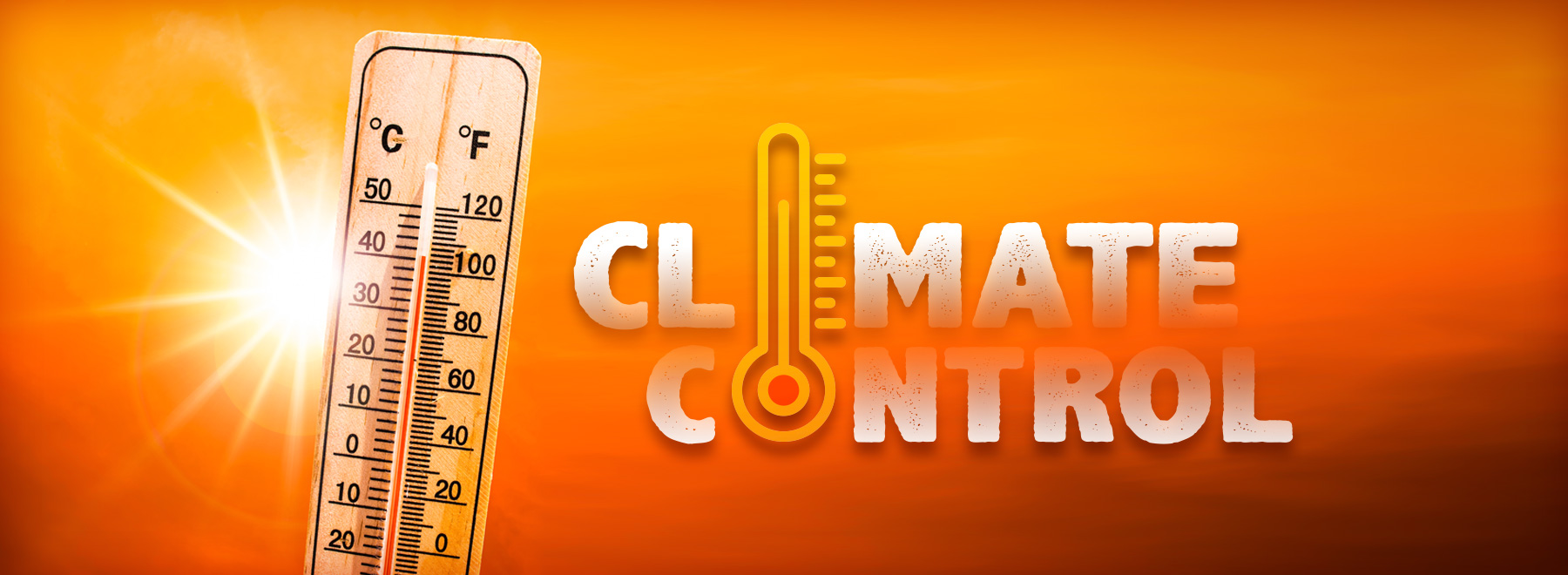How Mississippians can survive summer’s oppressive weather
An old adage about weather in our state goes something like this: There are really only two seasons in Mississippi - summer and winter. Spring and fall are just rumors.
That’s stretching the truth, of course, but anyone who has spent their summer months in the Magnolia State understands how oppressive the heat can be. What they may not be aware of is how dangerous it can be, too.

The state’s average heat index, according to Dr. Kelley M. Bishop, UMMC assistant professor of family medicine, is an astounding 114.8 degrees Fahrenheit, “a dangerous factor in Mississippi summers,” she said.
“When you consider that, along with the health problems faced by the average Mississippian, including obesity, hypertension, heart disease and/or diabetes, Mississippians are at a way higher-than-national-average risk for heat-related injuries,” Bishop said. “The necessary medications used to treat said conditions can increase a person’s risk of overheating as well.”

The body may have its own natural cooling system, but Dr. Risa Moriarity, UMMC professor and executive vice chair of emergency medicine, said the harsh climate often disrupts its effectiveness.
“The primary method by which our bodies cool themselves in extreme heat is by evaporation of sweat,” Moriarity said. “When we sweat, the droplets on our skin evaporate and this cools us. However, in a humid climate, evaporation does not occur readily and we can remain overheated despite sweating.
“Furthermore, nearly 20 percent of our population lives in poverty and may not have access to air conditioning. During the summer months, this significantly increases their risk of heat-related illness.”
According to the Centers for Disease Control and Prevention, overexposure to heat - also known as heat stress - can result in heat rash, heat cramps, heat exhaustion or, worst of all, heat stroke, a life-threatening condition that requires immediate medical attention.
How’s that for a harsh Mississippi summer?
Therefore, it’s important to know the common symptoms of heat-related illness. Here’s a breakdown of the heat illness spectrum. It’s important to note that patients could have more than one of these heat illnesses at the same time.
- Heat rash is a cluster of pimples or small blisters that occur where excessive sweat can accumulate, such as on the neck, chest, groin, inner thighs, under the breasts and in elbow creases. But the mildest of the heat-related injuries still requires immediate care.
Bishop recommends moving to a cooler environment, keeping the rash dry and possibly using medicated powders that can relieve itch and have some drying action. - Heat cramps can occur in people who have excessive sweating, which can cause loss of the body’s natural hydration and electrolytes, Bishop said.
“As they are performing activities requiring increased exertion, that loss of hydration and electrolytes can induce painful cramps,” she said. “It can be a symptom of being overheated. Heat cramps also can be a sign of rhabdomyolysis, which is the actual breakdown of muscle.
She said overexposure to heat, along with prolonged physical exertion, could cause this condition.
“Cramps or muscle spasms along with abnormally dark urine and weakness should prompt rapid action, including stopping the offending activity, getting out of the heat, immediate oral hydration, preferably with water, and seeking care at a medical facility. The dangers of this condition include irregular heart rhythms, seizures and kidney damage.” - Heat exhaustion represents a major step on the heat-related illness spectrum. Symptoms may include increased thirst, heavy sweating, irritability, headache, nausea, dizziness, elevated body temperature and decreased urine output.
To treat heat exhaustion, Bishop recommends promptly moving the patient to a cool environment, oral hydration, removal of socks, shoes and outer clothes, cold compresses or ice packs and evaluation at a clinic or emergency room. - Heat stroke is the most serious of all heat-related injuries. Symptoms may include confusion, slurred speech, excessive, profuse sweating or hot, dry skin, a very high body temperature, seizures and loss of consciousness or coma.
“Heat stroke can be fatal if treatment is not prompt,” Bishop said. “A person suspected of heat stroke should be immediately transported to an emergency room for rapid hydration and cooling.”
Moriarity recommends that, while waiting for an ambulance to arrive, “cooling can be initiated with a cold, wet sheet or ice packs. If a fan is available, it can be used in combination with the cold, wet sheet or in combination with water sprayed on the person to cool them.
“Immersion in cold water is very effective, but must be used with extreme caution.”
She said immediate action is crucial.
“Of people who require hospitalization for heat stroke, 20 percent do not make a full neurological recovery,” she said. “They may also develop liver, kidney and lung damage from the illness.”
As with any illness, prevention is the most important aspect of curtailing symptoms. UMMC’s experts offer these suggestions:
- Stay in a cool environment.
“Choosing early-morning and later-evening hours for outdoor activities and utilizing indoor activities during the heat of the day is advisable,” Bishop said. “If avoidance of high heat isn’t possible, measures can be taken to limit the possibility of heat injury.” - Wear appropriate clothing.
Bishop recommends wearing lightweight, light-colored and loose-fitting clothing. - Remember sunscreen.
Bishop said sunscreen of at least 15 Sun Protection Factor should be applied 30 minutes before heading outdoors. And don’t forget to reapply it according to the chosen sunscreen directions. - Wear additional protection.
Bishop suggests wearing a wide-brimmed hat and sunglasses to help avoid excessive sun exposure. - Don’t count on sweat.
Sweating - or the lack thereof - should not be viewed as an indicator of whether someone has a heat-related illness, Moriarity said.
“It is very unreliable,” she said. “Someone with symptoms of heat stroke may be sweating or not sweating.” - Watch what you eat.
Avoiding heavy, hot meals may help maintain internal body cooling, Bishop said. - Medications may be inadequate.
Remember that Tylenol and ibuprofen don’t help someone suffering from heat illness, Moriarity said. - Drink plenty of liquids.
Starting hydration before heading outdoors could help, Bishop said.
“Taking frequent breaks to hydrate and cool down in the shade or indoors is advised,” she said. - Create evaporation.
Moriarity said a fan alone will not effectively cool someone with heat-related illness.
“Cool, sprayed water or a cool, wet sheet must be used with it to create evaporation,” she said. - Take your time.
If you aren’t accustomed to exercising or working in a hot environment, it is important to pace yourself, Bishop said.
“Starting at a lower-intensity exercise and gradually increasing is advisable,” she said. “If your heart begins to race or you become light-headed, you should cease exercising and immediately move indoors in the cool.” - Use ice packs appropriately.
Moriarity said if ice packs are needed to help cool someone down, be sure to place them on hairless skin.
“People often think of the neck, underarms and groin, but these are not always the best locations,” she said. - Stay indoors when it’s too hot.
“Above all,” Bishop said, “limiting your outdoor activity during the hottest hours of the day is the best plan.”
Bishop said those in outdoor professions, such as delivery drivers, are particularly at risk of sustaining heat injuries in Mississippi.
She said these employees drive delivery trucks “that have no doors and therefore no air-conditioning. Adding to this risky situation is the time limits the drivers may face in making deliveries. This may cause a driver to avoid drinking enough fluids because of not wanting to have to stop to use a bathroom.
“Drivers that were successful in avoiding heat injury all said that they started hydrating before they started their routes. Waiting to start hydrating until they felt thirsty was disastrous in several instances. This advice can be carried over to those that are going outdoors for recreation as well.”
Moriarity stressed the importance of looking out for your neighbors during the prolonged Mississippi summer - particularly youngsters.
“Young children, and even teenagers, often don’t know to hydrate and don’t realize when the heat is worst - early-to-mid-afternoon,” she said. “They are also unlikely to recognize the early symptoms of heat-related illness and might not bring them to attention.
“Parents, coaches and other adults who work with children during the summer must be vigilant about protecting them from the heat.”
The above article appears in CONSULT, UMMC’s monthly e-newsletter sharing news about cutting-edge clinical and health science education advances and innovative biomedical research at the Medical Center and giving you tips and suggestions on how you and the people you love can live a healthier life. Click here and enter your email address to receive CONSULT free of charge. You may cancel at any time.



